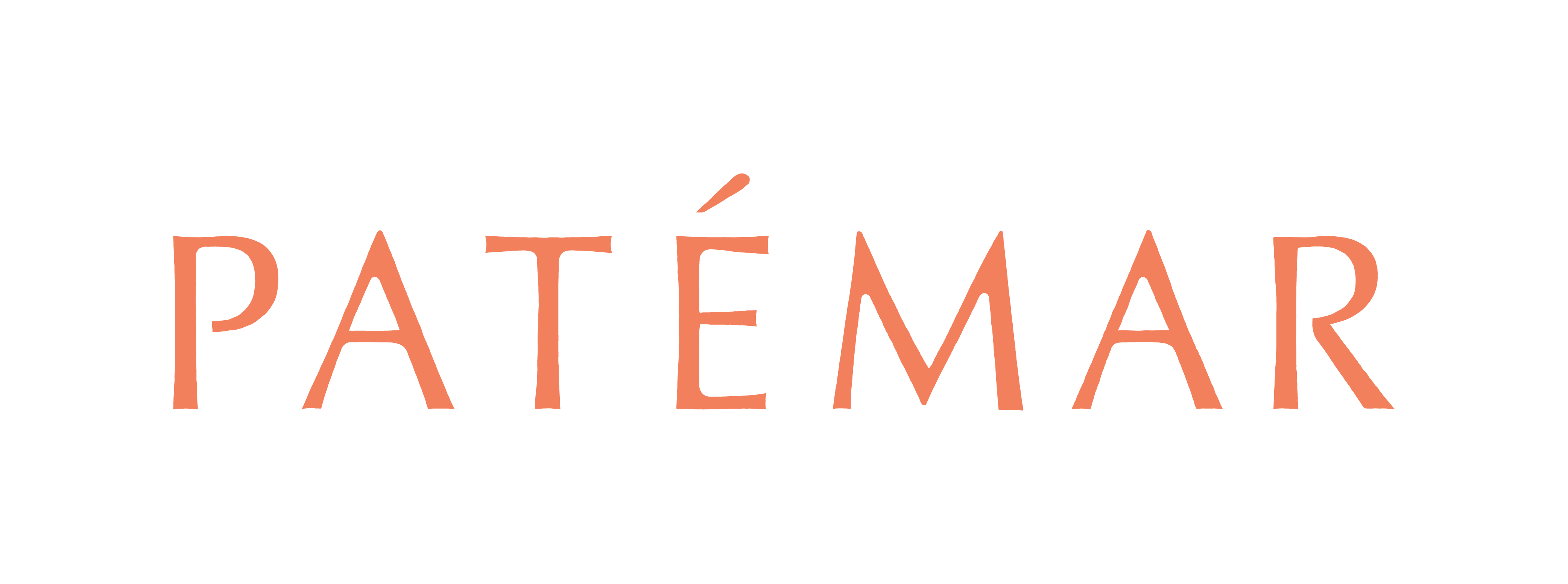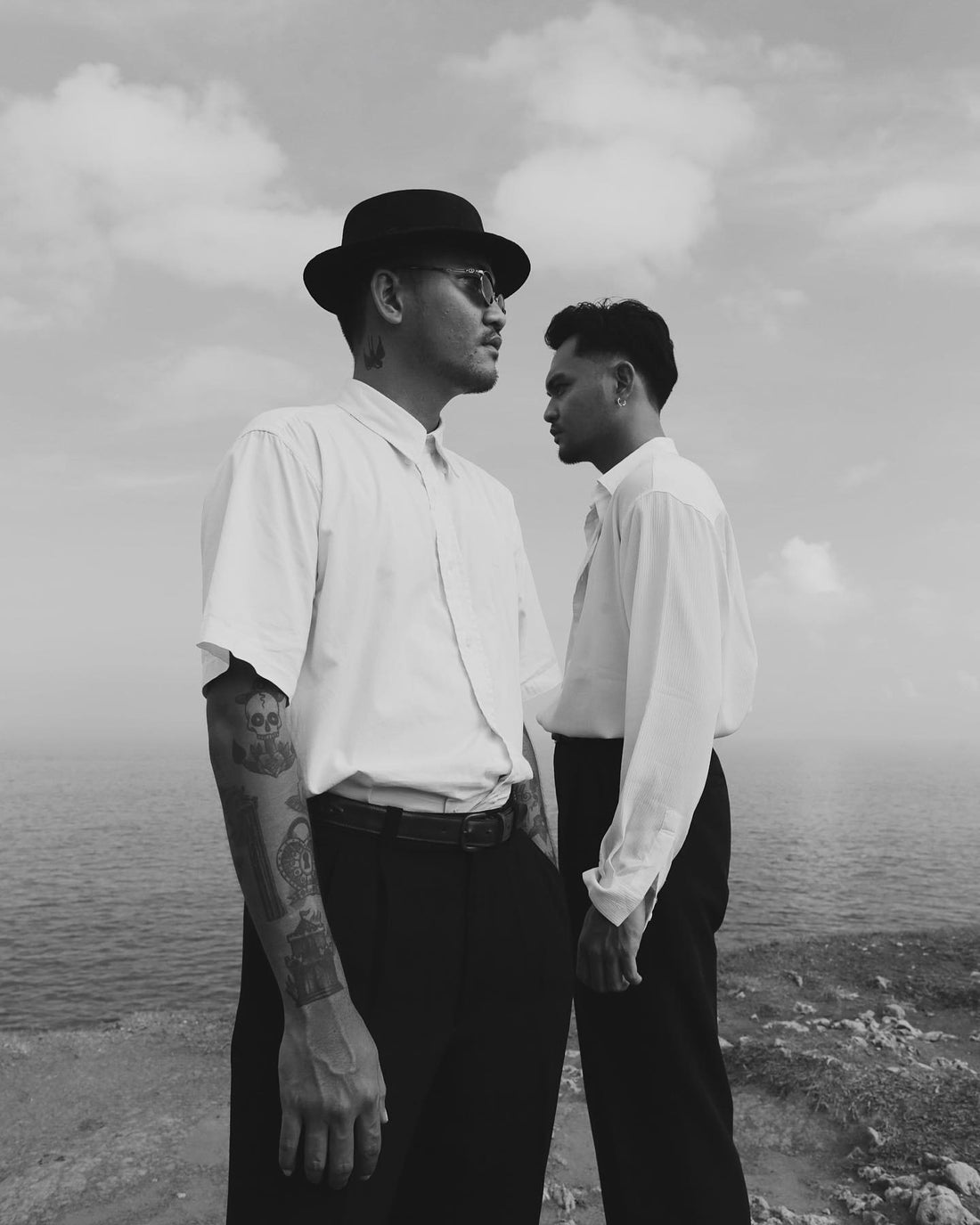A PATÉMAR MINI-SERIES : TASTEMAKER #04 : MR. SOODOG & FUAD MACHMUD
Words by : Lens of Passion
I have lived in Bali for 3 years now and everytime I see my friends with tattoos that trigger my curiosity, I would be bold enough to ask where they got them from.
DUĒ HATUĒ was mentioned time and again so I became aware of the brothers who have made permanent markings on Bali’s fabric as they do the same on humans in Bali.
It is one of the practices that was ubiquitous in every human culture in historic times, and has lived on to more corners of the modern world. As many things, tattooing is made illegal in some places and embraced in many others. Whether you have a deep relationship with tattoos, in the process of getting some, or an observer of the evolution of markings we find on nearly every mummy excavated across borders, here is a story about it, about art, and about the twins who are steering one of the ships - of personal expressions, of memories, of lineage, of artistry, on the Bali Sea, riding waves into the Indian Ocean.
Thanks a ton for accepting this interview and joining this mini series co-created by Patémar and Lens of Passion. We want to showcase Bali’s remarkable local tastemakers’ stories and together we also reflect on sustainability, passion and the evolution of the community we live in with their unique lens. Today we’re going to explore with your lens. You are legendary tattoo artists, twin brothers, you are DUĒ HATUĒ. So, tell us a little bit about you two!
We were born in Borneo and started tattooing 7 years ago. We opened our studio in 2018 and we specialize in Indonesian-inspired tattoos from Dayak, Borneo, a place that plays a big part in our artistic expressions.
What is the meaning of DUĒ HATUĒ and why did you choose the name?
Soodog was the one who chose this name, derived from the Dayak language. Dué Hatué means two men because we started our project with only the two of us. However now we also have other guest tattoo artists in the studio.
In Bali, the name DUĒ HATUĒ is synonymous with two of Bali’s finest tattoo artists. What differentiate you from other tattoo studios around here?
We actually don't compare ourselves with others because of the different styles and methods. And actually, we are just number two. Why? Because everyone always tries to fight for first place and that’s why we prefer the second position[laughs].
In your other interviews you mentioned your slogan as “revisiting the tradition”. Can you elaborate as to what this means? You also talked about focusing on Indo-inspired tattoos from Dayak, your family and cultural roots, and sharing that with the world.
Borneo is one of the origins of the world’s first tattoo cultures - everyone knows that. Because we are from there, we tried to make new things from Bornean ornaments. We start from the classics and then insert modernity, so people seem to resonate with our designs well.
“Revisiting the tradition” is like we bring a part of the Indonesian culture to the artform, mixing Indonesian and modern elements so we add additional interpretations to tattoo designs, which we are really proud of. We don’t want to forget who we are and where we’re from. In the future, geographically, we want to do some work beyond Indonesia so we can share the story and heritage of our home country.
Because tattooing is a combination of a lot of different things, we also perceive the art as a form and opportunity of storytelling. We think it is similar to curating different exhibitions (like those you experience in a museum) on people’s physical bodies. In a way, like, walking posters and we are creating more. People can see exhibitions about Indonesia and our artistic notes everywhere in the world because of global mobility - the exhibits travel and the visitors travel.

We recently went to Santanera (a restaurant in Canggu, showcasing “Latin American flavors with European influences”) and saw your beautiful mural. Congratulations! Is DUĒ HATUĒ branching outside of the studio?
Thanks and yes, we designed all the walls there as we’re also creating something in Jimbaran Bali, which will be followed by our projects to establish a visual identity for The Fab Lab in Barcelona, and a real estate company in Cyprus.
We plan to be based in Bali and travel more for work once everything is back to normal. We hope to have the studio running without our full-time presence because we have a lot of guest artists from around the world who want to do great work through our studio and to contribute to our clientele. That said, excellent studio management is necessary and we’re getting there.
One of our ultimate goals is to run our pop-up studio outside of Indonesia. Guesting can be fun too - we would be honored to do that in Sang Bleu Tattoo in London, our friend’s studio in Barcelona, and also Brown Peanut Tattoo Studio in Korea.
Part of the reason why we’re doing the interview is to get to know both of you personally, not just professionally. Please tell us, how does it feel to work together as siblings?
We live together and now part of the house has become a private studio. Physically, working here can be tricky because we wake up, work and go to sleep in the same space! Hopefully, next September we’ll be able to move to a new studio. As for thinking, sometimes I have a different vision than Fuad and we try to include both opinions, but sometimes it’s really hard because we have our own ego.


Is being a fine tattoo artist something that you two imagined yourselves doing growing up?
We never really thought exactly this would happen. It is true that art has been our thing since we were kids. We liked craft, we liked to deconstruct toys and rearrange the pieces together with glue. Actually Soodog started tattooing first and I never thought I would join him in the tattoo world…but at that time, it was really hard for me to make money from making furniture and other crafts in Yogyakarta so I moved to Bali following Soodoq and joined the tattoo business.
We love the fact that tattooing is so intricately connected with imagination, stories and design in many aspects of the human experience. We are constantly inspired by tattoo work and link it to designing furniture, interior decor and fashion! Everytime we move to a new place, we are intentional to integrate shapes, colors and forms from our lives’ portfolios.




Do you guys tattoo on your own bodies? Do you have a favorite tattoo and what does that signify?
Actually Soodog tattooed me before but I have yet to do it for him. The plan is for me to ink the Soddog’s entire back. My favorite piece is on my neck, it carries a strong and original Dayak style (spiritual art form that merges images of humans, animals, and plants into one unit). The whole process was traditional and it is a powerful visual with a deep meaning of my character and roots. Actually, Soodog and I have the same tattoo on our necks and it changed our lives so much.
Initially Sodooq wanted to get a different design, but the tradition is that the family is supposed to have the same design to honor the tribe. The tattoo is shaped like a dragon but the body is similar to a frog. The meaning: a frog swims from a small river into a big ocean, analogizing the transformation of a guy to a man. After getting this tattoo, both of us were in the position to feel and carry out bigger responsibilities beyond ourselves.. If you visit Borneo, you will see many people there have this tattoo but back in the day, it was something people had to work really hard to earn.
What’s the best part and the worst part of your job?
The worst part is probably having to deal with clients who have too many changing thoughts because that can impede our focus in developing the best pieces. These days, thankfully, we are doing less on the customer-facing, discussion type of work, and we’re focusing more on our artwork - what we believe to be the foundation of trust in this business. We have to deliver 100% on the artwork, make it the best possible, to repay our clients’ trust.
Overall though, with the right communication, there is a balance between exploring with the clients and focusing on the art. We really enjoy the process of creating something with dedication. Also, we are happy about the growth of our business and human network.

What’s your routine when you’re not working?
Two years ago, we used to party so much, maybe five times per week with work during the day. It was good because we built a lot of connections from socializing but, now we’ve changed the habit, to a routine that nurtures more focus. We wake up early to run or bicycle around town, chill at home, enjoy coffee, and work on design stuff. We now work everyday to create tattoos for our clients.
Patémar is a Bali-based lifestyle brand that recycles ocean-bound plastic waste into beautiful swim shorts. As a resident of Bali, what is your opinion on the current state of Bali beaches?
Bali is screwed…the trash problem is crazy. It's really cool that some people try to help clean up but the source of the problem doesn’t take a break. I guess it depends on who you’re asking but we think the sustainability culture is not popular here. Old people just throw trash everywhere and the youngsters continue to copy. That’s why, before we can change minds, upcycling can really help.
We also believe that everyone can make a change within this movement, no matter who you are and where you’re from. What are some small ways that you guys can advise our reader in helping the environment?
It’s easy to throw trash to where it belongs (the bin!) but sadly, in the end, the ocean is our landfill. As for practical ideas, we think it is easier to educate people and kids in school to separate their trash (organic and non for example), embed the knowledge in the education curriculum so the next gen isn’t not only studying math and other objects, but the life-saving curriculum about environment and sustainability. Indonesia is a beautiful country and it will be even better with less trash.
Within your industry, what are the things that you can advise and share for people to start doing it more sustainably?
Our friend in Barcelona is already using paper cups in the tattooing session instead of plastic ones so that’s a start. Normally, there is quite a lot of plastic trash from tattooing one person so we have started to think about evolving ourselves into a more eco-friendly tattooing business, recycling the plastic, and also using more sustainable and biodegradable products (wraps, wipes, etc.). The cost will be more expensive, for sure, so we hope we can look into producing the supplies ourselves to control the costs better.
Once again thank you very much for accepting this interview because I think it’s such an honor for us to be able to talk to two of you, the brains behind the amazing work that you guys are doing around Bali and soon sharing your talents with humans in foreign places too.


****
Editors Note: The Patémar Mini-Series Tastemakers will be published on the first week of each months of the season. Stay tuned and follow our instagram @patemarshorts and @lensofpassionofficial to receive the latest update on our interviewees. #PATEMARTastemakers
See more DUĒ HATUĒ 's work at @duehatue


